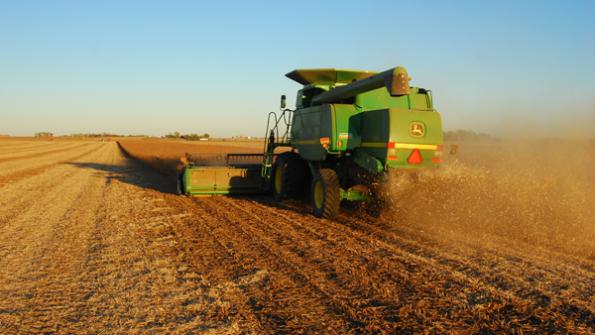August 31, 2016

Combines can spread Palmer Amaranth and waterhemp as well as other herbicide-rsistant weeds. Here are some tips on stopping the combine from spreading the seeds from the weeds.
Steps can be taken to help ensure that herbicide-resistant weed seeds, such as Palmer Amaranth and waterhemp, are not spread to new fields via combine.
Harvest herbicide-resistant weed-infested fields last.
Know whether the combine entering the field has recently been in a field containing herbicide-resistant weeds such as waterhemp or Palmer Amaranth. If so, take the time needed to clean it.
Herbicide-resistant pigweeds were introduced to Pennsylvania through transportation from other areas such as the Midwest and southeast where populations are more abundant. Therefore, when purchasing a used combine from out of state with known Palmer and waterhemp populations, take the necessary time to completely clean the combine before use.
Utilize an air compressor to remove the bulk of the weed seeds from the combine.
Check the rock trap, as weed seeds and debris may be caught here. Drop the rock trap and blow it out with the air compressor between fields.
Open trapdoors to clean the grain auger and tailings processor with an air compressor.
On a rainy day, consider a thorough 4-5 hour combine cleaning as a rainy day activity.
Since weed seeds can also travel on tillage equipment, clean this equipment after infested fields as well.
You May Also Like




